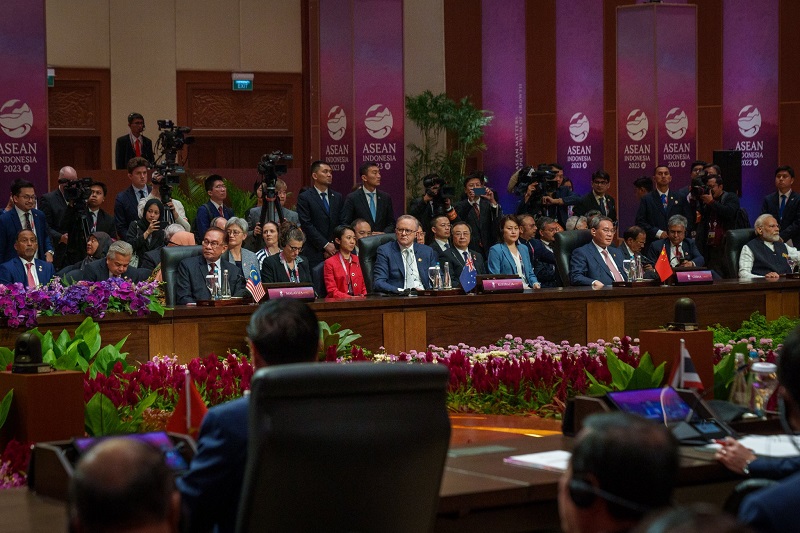Australian Prime Minister Anthony Albanese raised the human rights issues in Tibet, Xinjiang and Hong Kong during his meeting with China’s Premier Li Qiang in the margins of the East Asia Summit in Jakarta on Thursday.
“Yes. I raised human rights issues in Xinjiang, in Tibet and in Hong Kong,” acknowledged Albanese after the meeting with the Chinese leader who will also be attending the G20 Leaders’ Summit in New Delhi starting Friday.
The Australian PM admitted that the “whole context” of the discussion between him and the Chinese Premier was about how all have an interest in a peaceful, secure and prosperous region.
When asked by the travelling Australian media if there was any response from the Premier about China leaning into its disputed territorial claims, particularly in the South China Sea and India, Albanese preferred to play straight bat.
“We don’t go into every detail of meetings held here. I said I have raised human rights issues. I also raised issues that are the subject of discussion in the region including Taiwan, including the South China Sea,” he mentioned.
A productive discussion today with China’s Premier Li Qiang.
We exchanged views on bilateral issues, including trade, consular and human rights matters. Australia welcomes ongoing progress in the stabilisation of our bilateral relationship with China. pic.twitter.com/5V67zJYnyi
— Anthony Albanese (@AlboMP) September 7, 2023
Interestingly, Albanese travels to the Philippines – another country that has territorial disputes with China – from Indonesia before arriving in New Delhi over the weekend to attend the G20 Leaders’ Summit in New Delhi.
He will be the first Australian Prime Minister to undertake a bilateral visit to the Philippines since 2003 as Australia continues to upgrade its relationships with countries of Southeast Asia in order to tackle the growing Chinese aggression in the region.
In Manila on Friday, Albanese will hold talks with the country’s President Ferdinand R Marcos Jr, focusing especially on strengthening cooperation on defence and maritime security, development and education.
“The Philippines is a critical nation for Australia’s interest. We have strong economic relations with the Philippines. We also have strong co-operation when it comes to defence arrangements,” said the Australian PM.
Australia’s involvement in protecting the important trade routes in the region could grow with the Philippines seeking Canberra’s support to take part in freedom of navigation patrol in their South China Sea.
“Australia continues to engage, consistent with international law in the region, including in the South China Sea,” stated Albanese after wrapping up his Jakarta visit on Thursday afternoon.
Also Read: Australian and Japanese PMs head to India amid rise of aggressive China




















